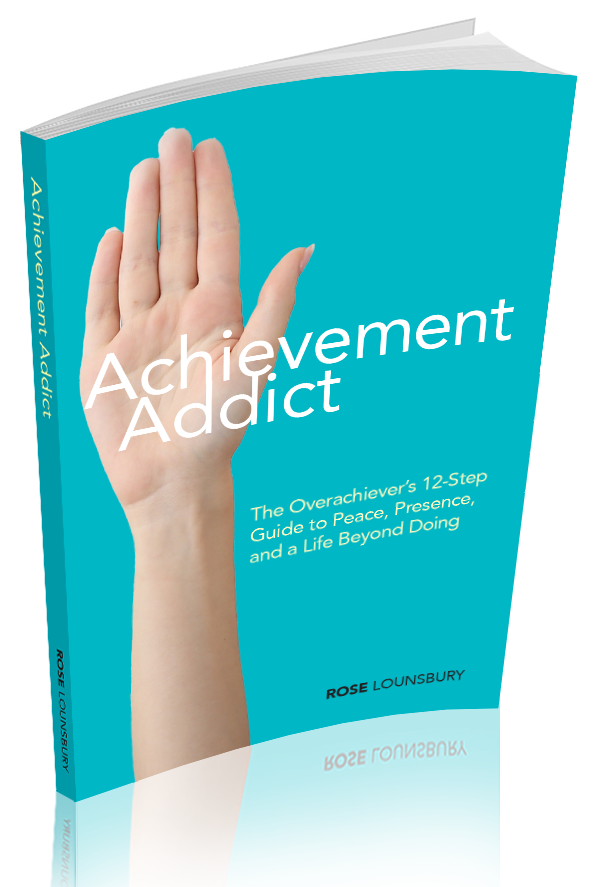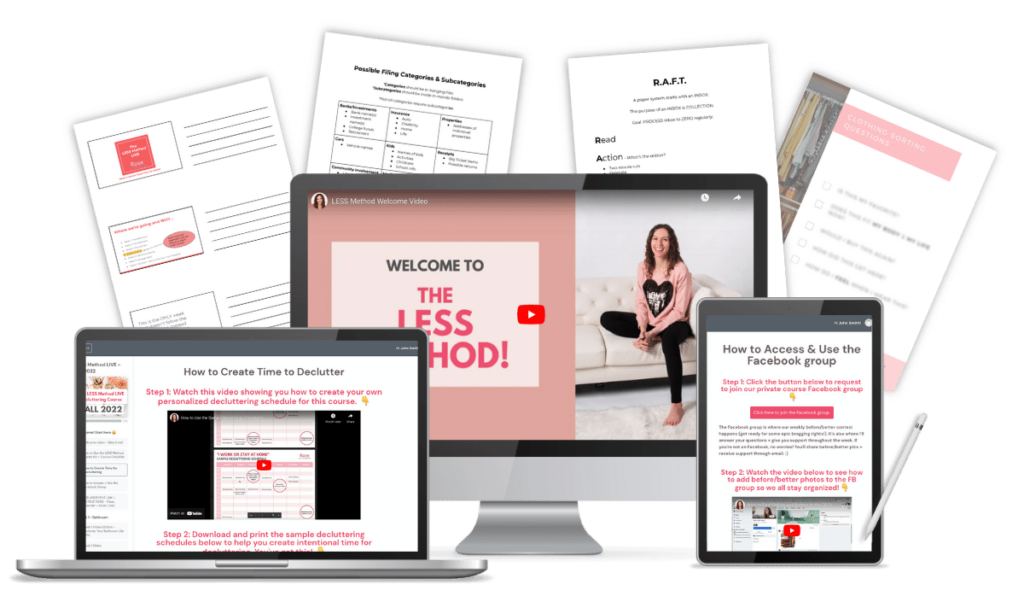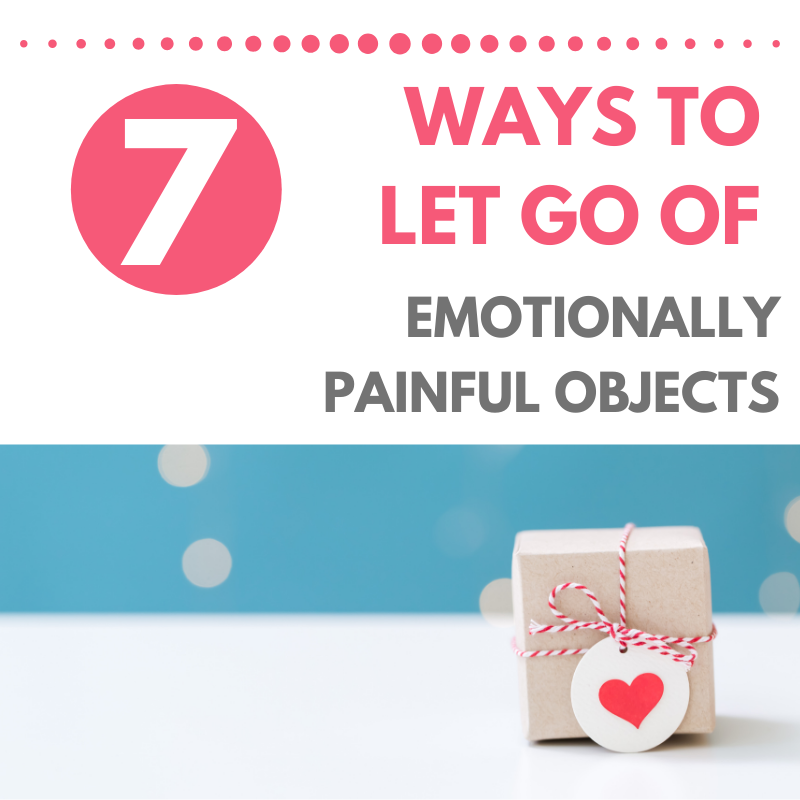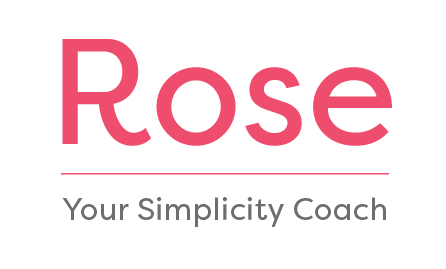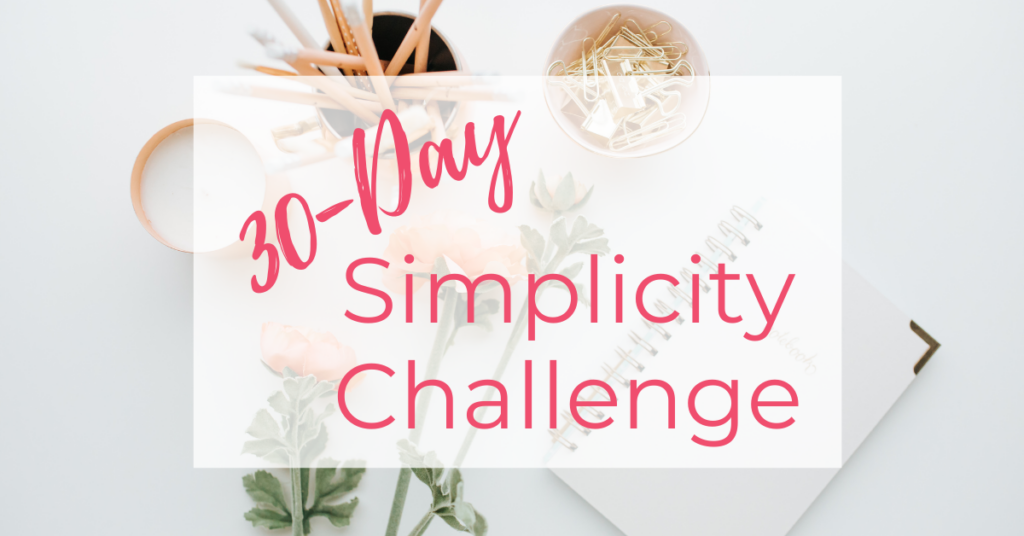“It’s an emotional minefield down there.”
This was how one of my clients described the boxes in her basement.
Perhaps you can relate.
When I ask people to name the most difficult objects to let go of, it’s almost always the same:
Photographs
Cards and letters
Gifts
Heirlooms
Memorabilia
What do all these items have in common?
Emotional attachments that are often painful.
We usually find these objects in the nether regions of our homes: the attics, the basements, the boxes on the shelves in the darkest corner of the spare room.
Objects like this can bring the most stoic of us to tears. This is why we avoid “those boxes” or perpetually tell ourselves that we’ll deal with that shelf “later.”
It’s not because we’re unable to open the boxes and sort through them.
It’s because dealing with emotionally painful objects forces us to re-experience parts of our lives we’d rather forget: our parents’ divorce, the loss of a loved one, the kids who grew up and moved away and never came home as much as we’d hoped they would.
It’s much easier to leave these things packed away, tell ourselves the lie that we’ll deal with it “someday,” and go on about our lives as if these experiences didn’t happen.
But they did.
When we ignore the boxes, what we’re really doing is ignoring the feelings.
And when we ignore the feelings, they don’t go away. They just get stuffed down into the basements of our hearts, unresolved, occasionally surfacing at inopportune moments to remind us that, oh yeah, we’re still not over our ex-husband or that mean thing our sister said in 1985.
This, my friends, is why we must deal with the boxes.
Not because the boxes themselves are a problem. But because leaving them unresolved leaves our feelings unresolved. It keeps us from emotional closure. It keeps us stuck in the past, unable to move forward and welcome the blessings and possibilities of our lives now and in the future.
Today I’d like to share 7 ways I help my private clients deal with the emotionally difficult objects. I hope it helps you deal with painful objects you might have in your home.
1.Break the Spell
I picked up this wonderful phrase from one of my favorite clients. Like many of us, she had foreboding boxes in her home that she preferred not to deal with. The problem is… when we avoid these types of boxes we give them power over us. By simply opening the boxes–even if we don’t declutter a single thing–we start to “break the spell.” We can trail our fingers through the contents and then walk away for awhile. When we come back, the items feel less painful.
Try it: If you have difficult boxes to sort through, “break the spell” by just opening them and looking inside. Then walk away for a while and come back. See if they’re easier to deal with.
2. Have a Witness
The funny thing about emotions is that we all have them, but we’re the only ones who know what ours feel like. Thus, bringing in an outside person who doesn’t have the same emotional attachments to our stuff is very helpful. Ask a spouse, friend, or loved one to sit with you while you sort through painful objects. Having someone else acknowledge, witness, and hold space for you as you deal with your past can be very healing.
Try it: Enlist a friend, partner, or relative to stand witness with you while you let go of emotionally difficult objects.
3. Document Digitally
Sometimes we’re ready to let go of a physical object, but we’re not ready to have the image of that object gone from our lives forever. Many of my clients take digital pictures of items as a way to keep the memory without keeping the thing.
Try it: Snap digital photos of items so you can keep the memory without keeping the thing.
4. Take the lesson
Painful objects can ignite a negative feedback loop where we berate our past selves for our decisions. We see the old wedding invitation and think, “I should have never married so-and-so! What was I thinking??” We find a picture of us with a group of high school peers and think, “Why did I hang out with those people? They were mean to me.”
It’s easy to look back and judge our former selves for the decisions we made. It’s easy to wish we’d never made the decisions. But we did. And that’s a good thing. Why?
Because we learned something.
One of my favorite songs is No Good Time by Trombone Shorty. Throughout the song, he repeats this line:
“Nobody never learned nothing from no good time.”
Every painful thing that happened in your past contained within it a lesson that was necessary for you to become the person you are today.
When sorting through painful boxes, I encourage my clients to take the lesson, honor the lesson, be grateful for the lesson, and then let the object go. For example, if you come across a letter from a toxic past relationship, you can say out loud, “Thank you for teaching me to seek relationships where I am loved and honored. I let you go now.”
This is powerful forgiveness stuff. And it will free you.
Try it: As you sort through painful objects, take the lesson, honor the lesson, be grateful for the lesson. And then let the object go.
5. Have a symbolic burn
Old letters and cards often pose a specific challenge. We often find that, while we no longer need to keep most of them, we simply can’t toss them into the recycling bin.
I suggest having a symbolic burn. You probably remember this from your first teenage love. Once it was over, you burned all the creatively folded notes and ticket stubs in the backyard while your best friend urged you on.
Your teenage self was smart. Burning is a symbolic way of cleansing. Humans have historically used fire ceremonies to represent the end of the old and the beginning of the new. If you like the idea of symbolic burning, you might even want to spread the ashes in a garden to symbolize new growth.
Try it: Try burning difficult papers as a symbolic way of letting go of the old and making room for the new.
6. Practice self-compassion
Self-compassion is perhaps the most important thing we can practice when we encounter painful objects.
For instance, when we open that box of college memorabilia, it would be easy to beat ourselves up by saying something like, “I’m such a failure for spending all that money on college and then leaving without a degree.”
Beating up your past self doesn’t change the past. It just hurts you now.
Your painful objects are an opportunity for you to practice loving yourself.
One of my clients developed this mantra that she used when she found these types of objects:
“I did the best I could at the time with what I had.”
Find a self-compassion mantra that works for you. But find one. Sorting through painful objects is a lesson in healing, not more hurt.
7. Integrate the past with the present
It’s funny how we humans want to draw distinct lines between our “past selves” and “current selves.” The truth is, we are just ourselves, a messy and beautiful combination of everything that happened before and is happening now.
Letting go of the painful objects from our past is not a way to cut off our past selves. This is impossible. It’s a way to integrate that past self with who we are now. It’s a way to hold that scared child, angry teenager, clueless newlywed, and inexperienced young professional and say, “Hey, you’re part of me, and I’m glad you’re here.”
One of my clients found it very healing to intentionally use the practice of letting go as a way to incorporate, accept, and embrace her past into her present. This allowed her to move closer to a more whole version of herself, which was beautiful to watch!
Try it: Let go of painful objects with the intention of integrating your past into your present.
I hope this post inspired you to deal with some painful objects you might have in your life. If you’d like to learn more about coaching with me, click here. I’d love to help you bring more freedom into your present by letting go of objects that are keeping you stuck in the past.
